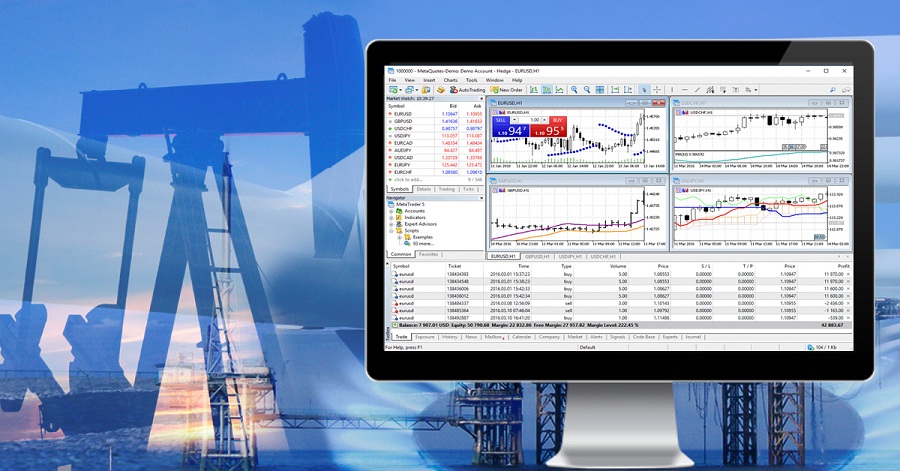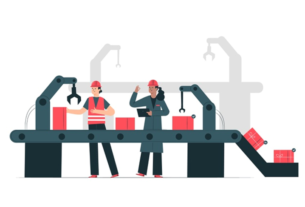Commodity exchange stands at the crux of India’s economic landscape, serving as a pivotal platform for the trading of essential commodities. It acts as a crucial link that connects producers, traders, and consumers, fostering a seamless flow of goods and ensuring equitable prices.The commodity exchange in India plays a vital role in promoting fair pricing and efficient resource allocation. Producers can showcase their commodities, while traders can readily access a diverse range of goods. This transparent marketplace allows for informed decision-making, benefiting both producers and consumers. Furthermore, the commodity exchange facilitates risk management and hedges against price volatility, thereby offering stability to market participants.By understanding the mechanics of commodity trading, aspiring traders and investors can navigate this intricate landscape with confidence. Additionally, we delve into the distinct features and advantages of key commodity exchanges in India, providing valuable insights to those seeking to engage in this bustling marketplace.Ultimately, this blog serves as a comprehensive guide, enlightening readers on the role and impact of commodity exchange in India’s economy. As we navigate the diverse world of commodity trading, we aim to equip readers with the knowledge and tools needed to thrive in this dynamic market, unlocking its immense potential for growth and prosperity.
Understanding Commodity Trading in India:
Commodity trading revolves around the exchange of raw materials or primary agricultural products. To facilitate these transactions, commodity exchanges act as vital infrastructures, backed by a robust regulatory framework that ensures transparency and fair pricing. The core participants in commodity trading encompass producers, responsible for supplying the commodities; traders, actively engaged in buying and selling on the exchange; and consumers, who utilise these commodities across various industries. This collaborative ecosystem creates a seamless flow of commodities, allowing for efficient resource allocation and equitable market access. The dynamic interactions among these key players influence the supply and demand dynamics, influencing commodity prices and shaping the overall market landscape. As the backbone of the commodity trading system, the integration of producers, traders, and consumers through commodity exchanges plays an instrumental role in maintaining market integrity and fostering sustainable growth in the commodities market.
Exploring the Top Commodity Exchanges in India:
India boasts several prominent commodity exchanges that facilitate trading across diverse sectors. The National Commodity and Derivatives Exchange (NCDEX) specialises in agricultural commodities, providing a comprehensive platform for trading agricultural produce, such as cereals, pulses, and spices. The Multi Commodity Exchange of India (MCX) is another major player, offering a wide array of commodities, including metals, energy products, and precious metals like gold and silver. The Indian Commodity Exchange (ICEX) focuses on diamond derivatives, catering to the unique needs of the gem and jewellery industry.
Comparing the Commodity Trading Platforms:
In India, each commodity exchange presents a diverse array of trading instruments and derivatives. The NCDEX and MCX, for instance, offer both spot and futures contracts, affording participants the freedom to tailor their trading strategies according to their preferences. Furthermore, these exchanges boast varying trading hours and market access, permitting traders to conveniently engage in transactions at their chosen times. Notably, transaction costs and fee structures diverge between exchanges, necessitating prudent evaluation by traders to optimise their trading experience. By comprehending the unique offerings of different commodity exchanges, traders can strategically select the platform that best aligns with their trading objectives and preferences. Such a judicious approach enhances their ability to capitalise on opportunities and navigate the intricacies of commodity trading in India effectively.
Commodity Trading Regulations and Compliance:
In India, regulatory bodies like the Securities and Exchange Board of India (SEBI) oversee and regulate commodity exchanges. These exchanges operate under strict adherence to rules and guidelines to uphold market integrity and safeguard the interests of investors. By complying with these regulatory measures, commodity exchanges ensure a secure and transparent trading environment. The role of regulatory authorities is critical in monitoring market activities, preventing fraudulent practices, and maintaining fair trading practices. Through regular monitoring and enforcement, these regulatory bodies play a pivotal role in promoting investor confidence and fostering a level playing field for all participants in the commodity market. Commodity traders can have confidence in the market’s credibility, knowing that their investments are protected by robust regulatory mechanisms. Overall, the stringent oversight of regulatory authorities contributes to a well-regulated and trustworthy commodity trading ecosystem in India.
Strategies for Profitable Commodity Trading:
For traders in the commodity exchange, the key to success lies in implementing effective strategies to optimise profits while mitigating risks. Making a choice between long-term investments and short-term speculation demands a comprehensive grasp of market trends and thorough analysis. Timing holds significant importance in commodity trading, necessitating the identification of opportune moments for entry and exit. Moreover, diversifying across various commodities aids in risk allocation, shielding traders from the impact of drastic market fluctuations. By devising well-informed strategies and adapting to the ever-changing market conditions, traders can enhance their chances of achieving lucrative outcomes in the dynamic world of commodity exchange. Staying well-versed in market trends, employing astute timing, and embracing diversification contribute to building a strong foundation for successful commodity trading, allowing traders to navigate the challenges and capitalise on the abundant opportunities in this thriving market.
Navigating the world of commodity exchange in India requires a comprehensive understanding of the key exchanges and their offerings. Traders need to consider various factors, including trading instruments, market access, and transaction costs, while choosing the most suitable platform. Adhering to regulatory guidelines and adopting profitable trading strategies are essential for success in this dynamic market. Aspiring commodity traders should seize the opportunities presented by commodity trading apps to optimise their trading experience and make well-informed decisions in this challenging yet rewarding landscape.





